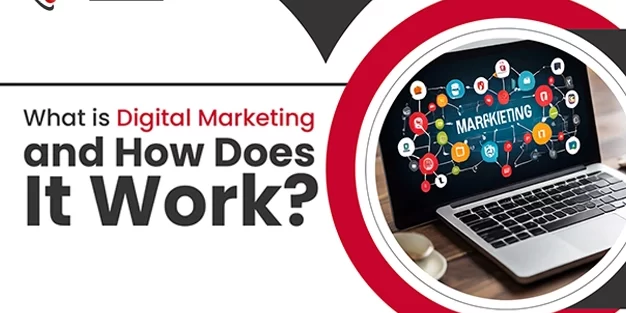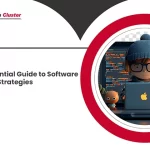In today’s digital age, marketing has evolved significantly from traditional methods to embrace the vast opportunities offered by the internet. Digital marketing encompasses a broad range of strategies and techniques aimed at promoting products or services through digital channels. From social media and email marketing to search engine optimization (SEO) and content marketing, the digital landscape offers diverse avenues for businesses to connect with their target audience and drive growth.
Understanding Digital Marketing
Digital marketing involves leveraging various online platforms and technologies to reach and engage potential customers. Unlike traditional marketing, which relies heavily on offline channels such as print ads or TV commercials, digital marketing utilizes the internet to deliver targeted messages to specific demographics in real time.
Key Components of Digital Marketing
- Search Engine Optimization (SEO): SEO is the process of optimizing a website to improve its visibility in search engine results pages (SERPs). By incorporating relevant keywords, creating high-quality content, and enhancing website performance, businesses can increase their organic traffic and rank higher on search engines like Google.
- Content Marketing: Content lies at the heart of digital marketing. Whether it’s blog posts, videos, infographics, or social media updates, valuable and engaging content can attract, inform, and persuade potential customers. Content marketing aims to build brand awareness, establish authority, and drive conversions by delivering valuable information to the target audience.
- Social Media Marketing: With billions of users worldwide, social media platforms like Facebook, Instagram, Twitter, and LinkedIn offer unparalleled opportunities for businesses to connect with their audience. Social media marketing involves creating and sharing content, engaging with followers, running paid advertising campaigns, and analyzing performance metrics to optimize results.
- Email Marketing: Despite the rise of social media and other digital channels, email remains one of the most effective tools for reaching and nurturing leads. Email marketing campaigns allow businesses to deliver personalized messages directly to subscribers’ inboxes, promoting products, sharing updates, and fostering customer relationships.
- Pay-Per-Click (PPC) Advertising: PPC advertising enables businesses to display ads on search engines and other platforms and pay a fee each time someone clicks on their ad. Platforms like Google Ads and social media advertising networks offer sophisticated targeting options, allowing businesses to reach users based on demographics, interests, and online behavior.
- Analytics and Data Analysis: One of the key advantages of digital marketing is the ability to track and measure campaign performance in real time. By leveraging analytics tools like Google Analytics, businesses can gain insights into website traffic, user behavior, conversion rates, and other crucial metrics, enabling them to refine their strategies and improve ROI.
The Digital Marketing Process
While the specific tactics and channels may vary, the digital marketing process typically follows a similar framework:
- Research and Planning: Understanding the target audience, market trends, and competitors is essential for developing a successful digital marketing strategy. Research helps businesses identify opportunities, define goals, and outline the tactics needed to achieve them.
- Content Creation: Content lies at the core of digital marketing. Whether it’s blog posts, videos, or social media updates, creating high-quality, relevant content is crucial for attracting and engaging the target audience.
- Distribution and Promotion: Once the content is created, businesses need to distribute and promote it across various digital channels. This may involve sharing blog posts on social media, sending email newsletters to subscribers, or running paid advertising campaigns to reach a wider audience.
- Engagement and Interaction: Building relationships with the audience is key to digital marketing success. Engaging with followers, responding to comments and messages, and fostering community interactions can help businesses build trust and loyalty among their customers.
- Measurement and Optimization: Tracking and analyzing campaign performance is essential for optimizing digital marketing efforts. By monitoring key metrics and adjusting strategies as needed, businesses can ensure they are making the most of their digital marketing investments.
In conclusion, digital marketing is a dynamic and multifaceted discipline that continues to evolve alongside technological advancements and changing consumer behaviors. By leveraging the power of digital channels and adopting a strategic approach, businesses can effectively reach their target audience, drive engagement, and achieve their marketing objectives in the digital age.




